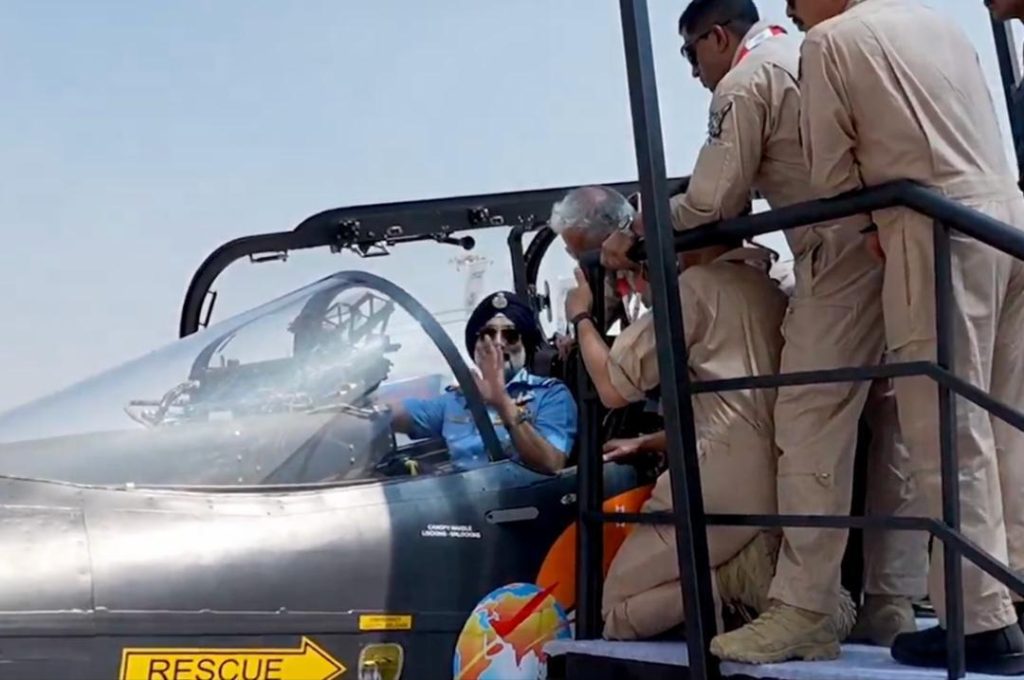
IAF Chief AP Singh Scolds HAL Officials, Says ‘I’m Not Confident of HAL’
The 14th edition of the Aero India event, one of the largest aerospace and defence exhibitions in Asia, recently took place in Bengaluru, Karnataka. The event saw top defence officials, industry leaders, and exhibitors come together to showcase the latest advancements in the field of defence and aerospace. However, amidst the excitement and fanfare, the Chief of the Air Staff (CAS), Air Chief Marshal (ACM) V. R. Chaudhari, popularly known as AP Singh, sparked a controversy by voicing his concerns about the slow pace of manufacturing Tejas aircraft by Hindustan Aeronautics Limited (HAL).
In an interaction with HAL officials during the Aero India event, ACM Singh expressed his disappointment and lack of confidence in the state-run defence PSU’s ability to meet the IAF’s requirements. His blunt comments sent shockwaves through the defence community, with many interpreting his remarks as a serious indictment of HAL’s performance.
“I can only tell you what our requirements and our worries are. You have to alleviate those worries and make us more confident,” ACM Singh told HAL officials. “At the moment…I’m just not confident of HAL.” His candid admission was a stark reminder of the growing concerns about HAL’s ability to meet the IAF’s needs, particularly in the context of the Tejas programme.
The Tejas, also known as the Light Combat Aircraft (LCA), is a multi-role fighter jet developed by HAL and is designed to replace the IAF’s ageing fleet of MiG-21 aircraft. The programme, which began in the 1980s, has been plagued by delays, cost overruns, and technical issues. Despite these challenges, the IAF has continued to place orders for the aircraft, with the latest batch of 83 Tejas Mark-1A aircraft ordered in 2021.
However, ACM Singh’s remarks suggest that the IAF’s confidence in HAL’s ability to deliver the Tejas programme on time and within budget is waning. The IAF has been critical of HAL’s slow production rate, with the PSU currently producing only about 8-10 aircraft per year. This pace is far short of the IAF’s requirement of 16-18 aircraft per year to meet its operational needs.
The IAF’s concerns about HAL’s performance are not new. In recent years, the IAF has been vocal about its frustration with HAL’s slow pace of delivery, and has even threatened to cancel the Tejas programme if HAL fails to meet its obligations. The IAF has also been critical of HAL’s quality control measures, citing instances of poor workmanship and defects in the aircraft delivered to date.
HAL, on the other hand, has been facing its own set of challenges, including funding constraints, talent retention issues, and infrastructure bottlenecks. The PSU has been unable to attract the kind of investment and support it needs to scale up its production capacity and meet the IAF’s requirements.
In light of ACM Singh’s comments, it is clear that the IAF’s confidence in HAL’s ability to deliver the Tejas programme is at an all-time low. The IAF’s requirements are clear: HAL must increase its production rate, improve the quality of its deliveries, and demonstrate a commitment to meeting its obligations. Anything less would be unacceptable.
In conclusion, ACM Singh’s scathing criticism of HAL officials is a wake-up call for the PSU to get its act together. The IAF’s concerns about HAL’s performance are well-founded, and it is time for the PSU to take concrete steps to address these concerns. The Tejas programme is a critical component of the IAF’s modernization plans, and any delay or failure to deliver would have far-reaching consequences for the IAF’s operational capabilities.






